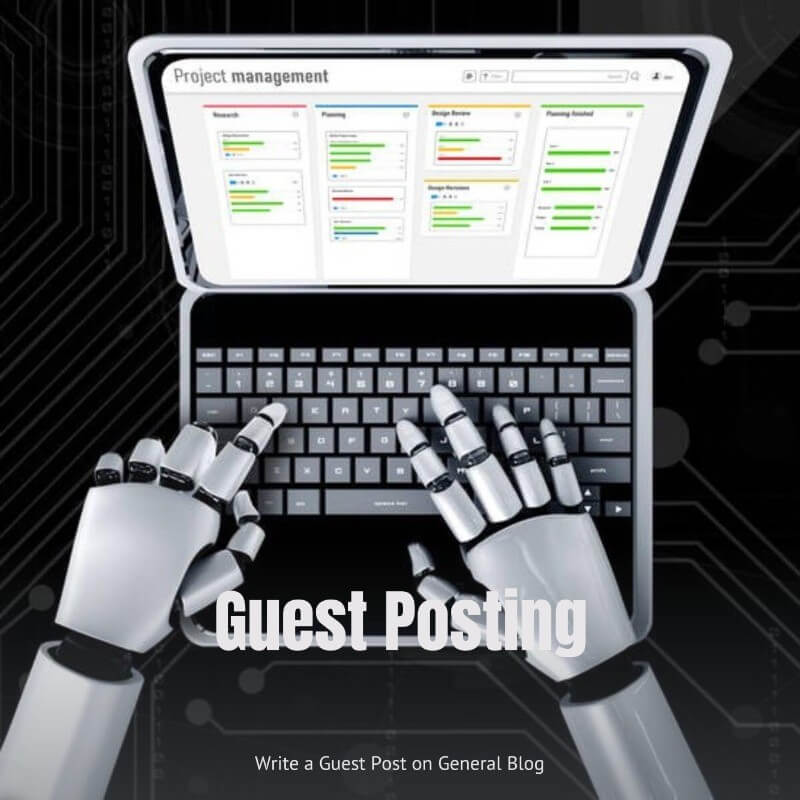Description
Write a Guest Post on General Blog:
Introduction
In the hustle and bustle of today’s fast-paced world, the concept of time management has taken center stage. The demands of work, family, and personal pursuits often leave us feeling overwhelmed and stretched thin. However, mastering the art of time management is not just about squeezing more tasks into our day; it’s about striking a harmonious balance between productivity and well-being. In this guest post, we’ll delve into effective strategies for managing your time, maximizing productivity, and nurturing your overall well-being.
The Paradox of Modern Life
Modern life presents us with an interesting paradox. While technological advancements have granted us tools to streamline tasks and communicate more efficiently, they have also increased our exposure to distractions and information overload. The constant notifications, emails, and social media updates can easily derail our focus and consume valuable time.
Strategies for Effective Time Management
- Prioritize with Purpose
Begin by identifying your most important tasks—the ones that align with your goals and values. Focus on completing these tasks before moving on to less critical ones. The Eisenhower Matrix, which categorizes tasks as urgent/important, important/not urgent, urgent/not important, and neither urgent nor important, can help you prioritize effectively.
- Set Clear Goals
Setting clear and specific goals provides you with a roadmap for your tasks. Whether they are short-term or long-term objectives, well-defined goals give your efforts direction and purpose.
- Utilize Time Blocking
Time blocking involves allocating specific time periods for different tasks or activities. This technique helps you manage your time more efficiently and reduces the tendency to multitask, which can lead to decreased productivity.
- Limit Distractions
Minimize distractions by creating a conducive work environment. Turn off notifications, allocate time for checking emails and social media, and consider using website blockers during focused work periods.
- Embrace the Pomodoro Technique
The Pomodoro Technique involves working in focused bursts, typically 25 minutes, followed by a short break. This approach capitalizes on your brain’s ability to maintain high focus for shorter durations, enhancing both productivity and concentration.
- Delegate and Outsource
Recognize that you don’t have to do everything yourself. Delegate tasks that others can handle and consider outsourcing tasks that are outside your expertise or time constraints.
- Practice the Two-Minute Rule
If a task can be completed in two minutes or less, tackle it immediately. This rule prevents small tasks from accumulating and bogging down your schedule.
Prioritizing Well-Being
Effective time management isn’t solely about churning out tasks; it’s about safeguarding your well-being in the process. Neglecting self-care can lead to burnout and decreased overall performance. Here’s how to prioritize your well-being:
- Allocate “Me” Time
Schedule regular periods for activities that rejuvenate your mind and body, such as exercise, meditation, reading, or spending quality time with loved ones.
- Embrace Mindfulness
Practicing mindfulness involves being fully present in the moment, which enhances focus and reduces stress. Incorporate mindfulness techniques into your daily routine to boost your overall well-being.
- Get Adequate Sleep
Sleep is essential for cognitive function, mood regulation, and overall health. Prioritize sleep by maintaining a consistent sleep schedule and creating a comfortable sleep environment.
- Stay Hydrated and Nourished
Proper hydration and nutrition have a direct impact on your energy levels and cognitive function. Stay hydrated and consume a balanced diet to fuel your body and mind.
- Take Breaks
Incorporate short breaks into your workday to recharge. Stepping away from your tasks for a few minutes can enhance your focus and prevent burnout.
- Set Boundaries
Set clear boundaries between work and personal life. Avoid checking emails or engaging in work-related tasks during your designated “off” hours.
Conclusion
The art of time management goes beyond mere task completion; it’s about fostering a harmonious relationship between productivity and well-being. By implementing effective time management strategies and prioritizing self-care, you can navigate the demands of modern life with greater efficiency and balance. Remember that successful time management is not about fitting more tasks into your day, but about making room for what truly matters—personal growth, meaningful connections, and a thriving sense of well-being.









Reviews
There are no reviews yet.